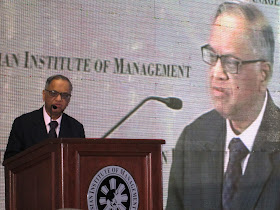28th Sunday
in Ordinary Time - C
The Gospel
passage this Sunday is about Jesus healing ten lepers and how only one went
back to Him to give thanks. This prompted Jesus to observe: "Ten were
cleansed, were they not? Where are the other nine? Has none but this
foreigner returned to give thanks to God?"
It has parallels
with another healing-from-leprosy story in the First Reading. The Syrian
general Naaman sought Elisha the prophet, and upon the latter's instruction, he
plunged into the Jordan River seven times and was healed.
If faith is
two-fold - God's gift and man's response - then the stories from the First and
Gospel Readings imply that gratitude is the first step we take in our faith response. What is this virtue about, and what role does it play in our
relationship with God? To answer these questions, I would like to propose that we
look at gratitude on three levels.
First, there is a polite gratitude. It is the kind expected by convention and taught by parents to their children. It is borne out of an
appreciation for a kindness done, a small gesture of acknowledgment for a good deed. Many of us
say "thank you" out of habit, whether it be for those who have done
us a favor, or delivered a service paid for. People who tend to forget to say
their thank yous are thought of as snobs.
Gratitude in this level functions as a positive reinforcement to encourage good behavior. This may be one of those values that makes interaction within society smoother, a starting point for the habit of being concerned for others. But this is not yet the spirit of gratitude prescribed by the Gospel.
Gratitude in this level functions as a positive reinforcement to encourage good behavior. This may be one of those values that makes interaction within society smoother, a starting point for the habit of being concerned for others. But this is not yet the spirit of gratitude prescribed by the Gospel.
Then there is a humble gratitude, a deeper level of thanksgiving whereby
our reflection of a kindness done leads to a realization of the limits of our
capacities and merits. We can neither survive nor attain success by ourselves alone.
We need others to help us. Indeed our life so far has been sustained by the
kindness of family, friends, and even strangers. And we are humbled by this insight even as we are led to see something more.
The humility
of Naaman the Syrian and the one Samaritan out of the ten healed lepers helped them see the
hand of God moving in their lives. In contrast, the Israelites, perhaps out of
a sense of exclusive entitlement to God's grace, failed to recognize the
great presence of God happening right before their eyes, both in the times of Elisha and
of Jesus.
The poet
John Milton writes: "Gratitude bestows reverence, allowing us to encounter
everyday epiphanies, those transcendent moments of awe that change forever how
we experience life and the world." Ever so humbly, just before Communion,
we utter the words: "Lord, I am not worthy that you should enter under my
roof, but only say the word and I shall be healed".
Finally, there is an inspired gratitude. Just like faith
that cannot remain merely as an enlightened mind or a trustful heart,
gratitude at its deepest level cannot but express itself in generosity and seek
to bear fruit. It is inspired in the sense that our recognition of a
"debt of gratitude" breathes into us a spirit that seeks
to repay the debt, or better yet, pay it forward. Thus, kindness begets
kindness, love begets love.
It is the
kind of gratitude that makes St. Paul testify as in the Second Reading:
"Therefore, I bear with everything for the sake of those who are chosen,
so that they too may obtain the salvation that is in Christ Jesus" (2 Tim
2:10). That he has been loved, forgiven, and chosen, made St. Paul all the more
inspired to preach the Good News of salvation even in the midst of
difficulties and persecution.
This is what being grateful does to us: it enables us to see God's grace working in our life, helps us acquire a more balanced and grounded view of ourselves, and moves us to play our part in God's greater scheme of things.
St. Paul teaches us: “In all things give thanks, for this is the will of God for you in Christ Jesus” (1 Thess 5:18). Thus, we pray that we be able to see clearly the things we need to thank God for. And in doing so, let us not just utter polite appreciation, but approach Him in humble worship, and seek to love others just as He has loved us.
St. Paul teaches us: “In all things give thanks, for this is the will of God for you in Christ Jesus” (1 Thess 5:18). Thus, we pray that we be able to see clearly the things we need to thank God for. And in doing so, let us not just utter polite appreciation, but approach Him in humble worship, and seek to love others just as He has loved us.









